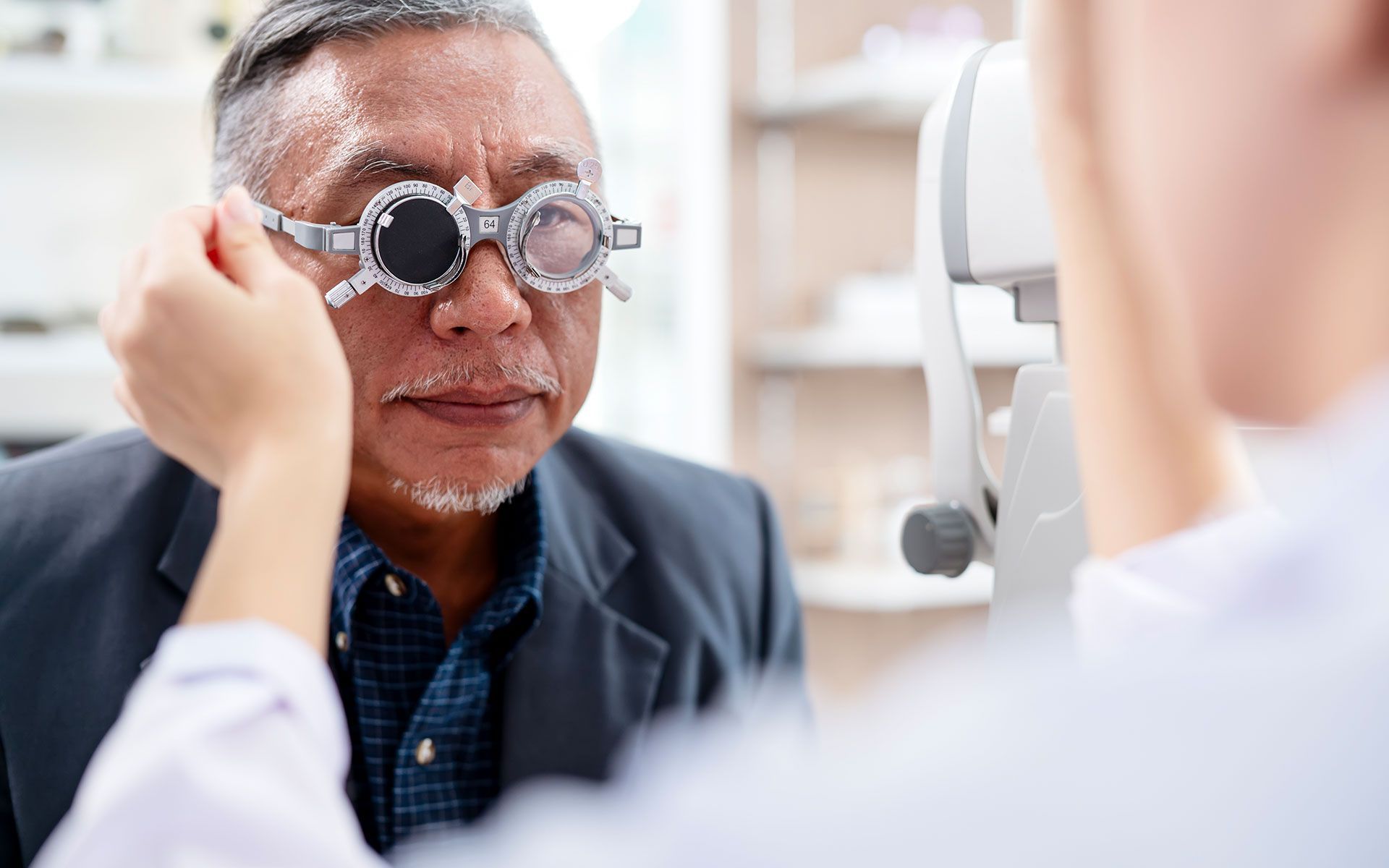Understanding Common Vision Conditions | Eye Associates of South GA, Valdosta, GA
Trusted Vision Care for Patients of All Ages
At Eye Associates of South GA in Valdosta, Georgia, we believe informed patients make empowered decisions. When it comes to your vision, understanding the conditions that can affect your eyesight is essential to maintaining long-term eye health.
Whether you’re navigating sudden changes in vision or seeking preventative care, our expert team is here to guide you every step of the way. This page is designed to help you recognize common eye conditions, learn how they affect vision, and understand how our clinic can help diagnose and manage them effectively.
If you’re experiencing symptoms or have questions about your eye health, call us today at
229-247-4114 to schedule a consultation.
What Are Vision Conditions?
Vision conditions refer to physical or functional problems that impact the way light enters the eye or how the brain processes visual information. Some are genetic, others develop with age, and some arise from trauma or muscle imbalances.
At Eye Associates of South GA, we offer diagnosis, education, and treatment plans for a full range of these conditions, always focusing on personalizing care for each patient’s lifestyle and needs.
Overview of Common Vision Conditions We Treat
Below is a breakdown of some of the most common conditions we treat and educate patients about. Each one may present differently and require tailored management or corrective solutions.
Amblyopia (Lazy Eye)
Amblyopia is the loss of central vision in one eye due to poor visual development. Often referred to as “lazy eye,” it typically develops in early childhood and may be caused by crossed eyes or unequal refractive errors. Early detection is crucial, as untreated amblyopia can lead to permanent vision loss in the affected eye.
Astigmatism
Astigmatism results from an irregular curvature of the cornea or lens, causing blurred or distorted vision at any distance. This condition is very common and can be easily corrected with eyeglasses, contact lenses, or refractive surgery depending on its severity.
Color Deficiency (Color Blindness)
Color deficiency impairs the ability to distinguish between certain shades of color, especially red and green. It is often inherited and more prevalent among men. While not typically harmful to overall vision health, it can affect everyday tasks and occupational eligibility in some fields.
Eye Coordination Problems
Proper vision relies on both eyes working together in sync. When eye coordination is off, individuals may experience double vision, depth perception issues, or headaches. This condition may stem from developmental delays or trauma and can often be treated with vision therapy or corrective lenses.
Hyperopia (Farsightedness)
Hyperopia occurs when the eye is too short or the cornea lacks curvature, resulting in difficulty focusing on close objects. Children often grow out of mild hyperopia, but moderate to severe cases may require corrective lenses.
Myopia (Nearsightedness)
Myopia is the opposite of hyperopia—close objects are clear, but distant ones are blurry. It typically develops in childhood and may worsen over time. Myopia can be managed with glasses, contact lenses, or refractive procedures like LASIK.
Presbyopia
Presbyopia is a natural aging process in which the eye’s lens loses flexibility, making it hard to focus on close-up tasks like reading. This usually becomes noticeable around age 40 and is commonly corrected with reading glasses or multifocal lenses.
Spots and Floaters
Floaters appear as small specks or threads drifting across your field of vision. These are usually harmless but should be evaluated if they suddenly increase or are accompanied by flashes of light, as they may indicate a retinal tear.
Strabismus (Crossed Eyes)
Strabismus occurs when the eyes are misaligned and point in different directions. It can lead to poor depth perception and amblyopia if left untreated. Treatment may involve corrective lenses, vision therapy, or, in some cases, surgery.
Visual Acuity Issues
Visual acuity refers to the clarity or sharpness of vision, typically measured by the 20/20 standard. Decreased visual acuity may signal the presence of another condition and can be corrected with proper prescription lenses or further treatment depending on the cause.
When to See a Specialist
If you’re experiencing blurry vision, eye strain, frequent headaches, or difficulty seeing at certain distances, it’s time to schedule a comprehensive eye exam. Many vision conditions develop gradually and can go unnoticed until they affect daily life.
Early detection allows us to intervene with customized solutions, whether that’s through glasses, contacts, vision therapy, or referral for surgical options.
Why Choose Eye Associates of South GA?
Prioritize Your Eye Health Today
Your vision is too important to leave unchecked. Whether you’re managing a lifelong condition or noticing something new, Eye Associates of South GA is here to help.
Schedule Your Eye Exam With a Trusted Vision Expert
📞 Call 229-247-4114 or stop by our Valdosta, GA, clinic to book your comprehensive vision screening today.
Let us help you protect what matters most—your sight.




